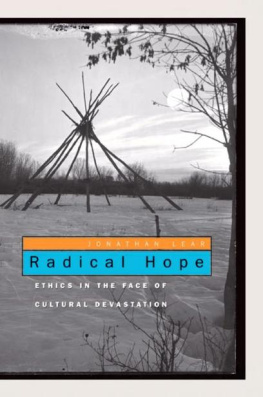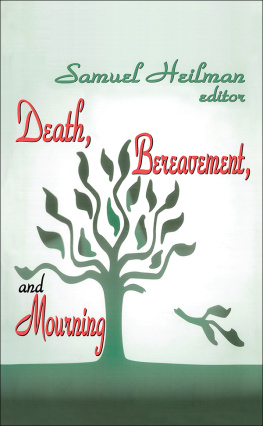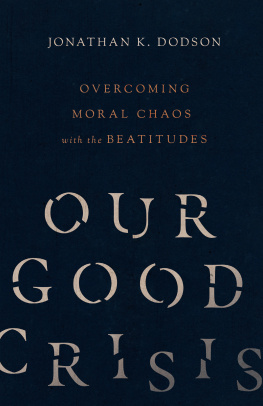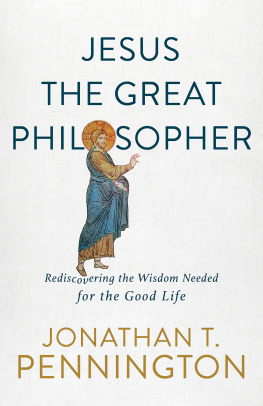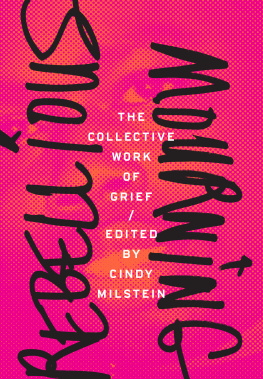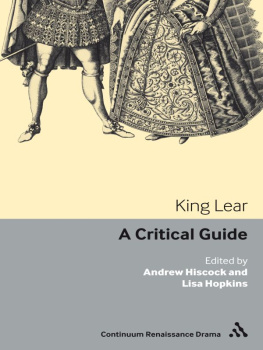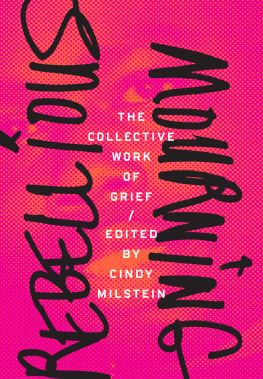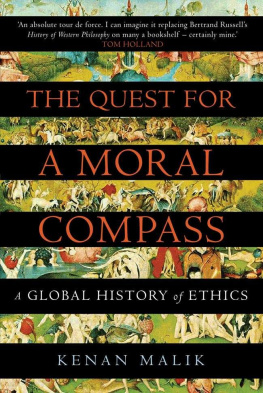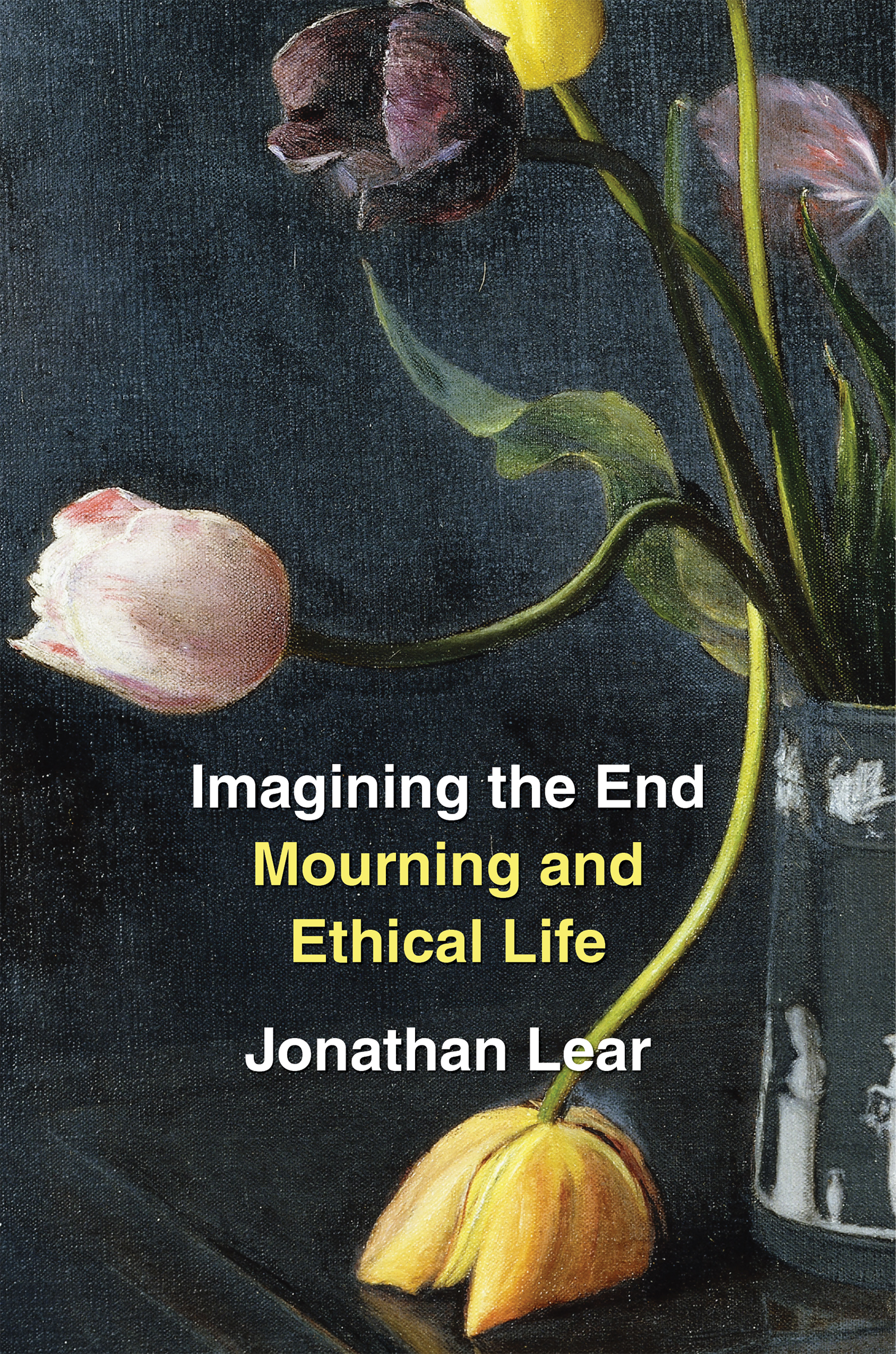Contents
Guide
Pagebreaks of the print version
Imagining the End
Mourning and Ethical Life
Jonathan Lear
The Belknap Press of Harvard University Press
Cambridge, Massachusetts, and London, England
2022
Copyright 2022 by the President and Fellows of Harvard College
All rights reserved
978-0-674-27259-0 (hardcover)
978-0-674-28748-8 (EPUB)
978-0-674-28747-1 (PDF)
Cover art: Tulips by Charles Specelayh, 1946, Estate of Charles Spencelayh. Photo Christies Images / Bridgeman Images.
Cover design by Tim Jones
The Library of Congress has cataloged the printed edition as follows:
Names: Lear, Jonathan, author.
Title: Imagining the end : mourning and ethical life / Jonathan Lear.
Description: Cambridge, Massachusetts : The Belknap Press of Harvard University Press, 2022. | Includes bibliographical references and index.
Identifiers: LCCN 2022005773
Subjects: LCSH: BereavementMoral and ethical aspects. | GriefMoral and ethical aspects. | End of the worldMoral and ethical aspects. | LifeMoral and ethical aspects. | Gratitude.
Classification: LCC BF789.D4 L375 2022 | DDC 155.9/37dc23/eng/20220412
LC record available at https://lccn.loc.gov/2022005773
For Gabriel and Sophia and Sam with love
Contents
In writing this book, I have regularly been visited by the phrase even here. Socrates meets someone in the midst of daily life, but he does not just move on. His life exudes confidence that if he lets the conversation develop, even here philosophy will arise. And though psychoanalysis differs in important ways from Socratic conversation, it too holds to the commitment that if one will allow a report of some ordinary event to unfold, even here something of human significance will show up. A number of chapters in this book contain ordinary, fleeting moments.
This book circulates around a cluster of questions that I have found, somewhat to my surprise, hang together. How does the end of life in the sense of world catastrophe fit with the end of life in the sense of lifes purpose, aim, or meaning? What is the difference between healthy and unhealthy uses of our imagination? How do we live with the realization that culturestraditionally providers of solace and meaningare themselves vulnerable? What is mourningand how could it be part of our flourishing? How is it that remarkable individuals grab our imaginationsand then stay with us throughout our lives? What is gratitude, and what is its place in human life? In thinking about these questions, I found myself wondering again about the psychoanalytic concept of repetition. So that is another question: What is repetition?
One of the pleasures of writing a book is that one gets to share ones thoughts with people one has not met and cannot otherwise reach. Another is to continue a conversation with a friend but at some geographical or temporal distance. It is a special mixture of intimacy and separation. To those who read this book and find they get something out of it, I would like to express my gratitude.
So Socrates! he teased, you are still saying the same things I heard you say long ago.
Socrates replied: It is more terrifying than that: Not only am I always saying the same things, but also about the same things.
(Xenophon,MemorabiliaIV.4.6)
The Moment
Not long ago, I listened to a lecture on climate change. The lecture went as one might expect. There was a warning of impending ecological catastrophe and talk of the Anthropocene, suggesting that our agethe age in which humans dominate the Earthis coming to an end. At the end of the talk, there was a discussion period. At one point, a young academic stood up and said simply, Let me tell you something: We will not be missed! She then sat down. There was laughter throughout the audience. It was over in a moment.
The comment was experienced as a joke, and the laughter was spontaneous. It was a moment of release that no one anticipated but which the audience shared. Release from what? If we read newspapers or participate in social media, read blogs, or watch television, it would be surprising if the end of the world were not somehow on our minds. Indeed, there is cultural pressure to feel anxious about the future. Does this anxiety help us, perhaps by alerting us to the challenges we face? Or might it distract us or otherwise get in the way?
Two Senses of an End
The joke links together two different senses of what we might mean by the end of life. There is the obvious sense of the end as termination, of life coming to an end. But there is also the sense of end as the aim or purpose, the goal or telos of life; the sense of what life is all about. In effect, the joke says that it is because we have lost a sense of our proper endour purposethat human life is coming to an end.
The official meaning of the statement is one of cosmic justice (rendered in comic form). We will not be missed because we do not deserve to be missed. We humans, during our tenure on Earth, have been so greedy and avaricious, so thoughtless, aggressive, and destructive that if the endangered species and rain forests and polluted rivers, the plastic-choked lakes and oceans could speak, they would say, good riddance ! The rest of the world is better off without us. It was as though the human presence on Earth had been a disruption, and natural harmony would be restored once we were gone.
The joke also picks up on a culturally shared anxiety about the end of democracy. Are the contemporary institutions of democratic political life able to withstand the polarizing pressures that have come to mark our time? Again, there is a fear of democracy coming to an end because of the loss of our shared sense of its purpose or end. And, if we take Plato as a guide, these two catastrophesone ecological, one politicalare likely linked to each other by the phenomenon of human appetite. For Plato, our appetites are voracious and unlimited; they can undergo indefinitely many transformations in imagination. They seek to acquire and consume without any sense of proper end. Democracy, for Plato, is precisely the political form that inflames our appetites and encourages us to expand them without limit. Were Plato to observe our scene today, it would make sense to him that democracy comes to an end, ushering in a tyranny of appetites that itself brings ecological catastrophe.
The Joke
Still, one might well wonder how we are able to enjoy this imagined punishment as a joke. On the surface, the comment invites us to envisage the catastrophic destruction of human life on Earth: how does that get to be funny? The humor is dark, and it depends on the double meaning in the phrase We will not be missed!: we will not be missed because we do not deserve to be missed, and we will not be missed because none of the creatures who survive will be capable of missing us in the manner that being missed matters to us. Other animals suffer loss and grieve, sometimes in complex and heartrending ways. Our pets may miss us. But in the joke, we are threatened with the loss of the special kind of missing that is characteristic of human beings: mourning. We shall investigate mourning throughout this book, but to begin, when a loved one dies, our imaginations get busy, trying to make sense of it all. Often, we join in cultural rituals; sometimes, we withdraw. Either way, our imagination and emotional life seeks the whole: Who was that person? What was our relationship? What does it all mean? We symbolize and daydream, make judgments and play around; sometimes, we cry our hearts out. Mourning is a living-on in the hearts and minds of others in the characteristic ways we humans miss others. It is, of course, not unusual for humans when facing the prospect of our own deaths to find solace in the thought that we will be remembered lovingly by our loved ones, and fondly and admiringly by those with whom we have shared our life. It is important to us to think of ourselves as participating in values and projects that we take to be good and believe will continue after we are gone. So, it seems that the punishment we suffer in the imaginary logic of the joke is that of being deprived of this kind of being missed. If humans go out of existence, we will not be missed because



